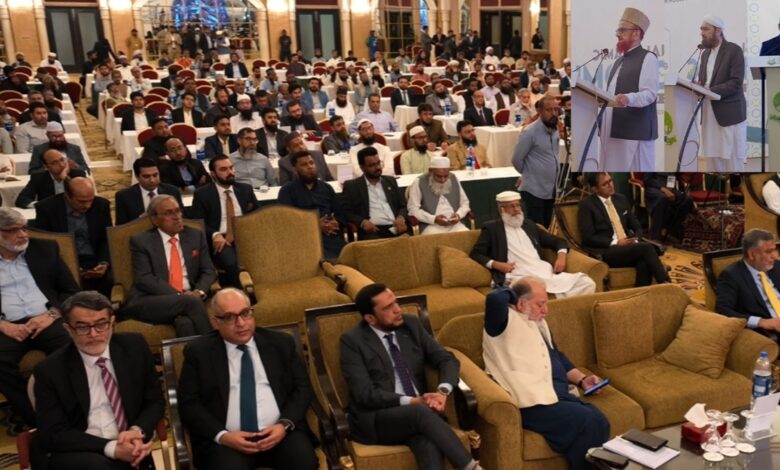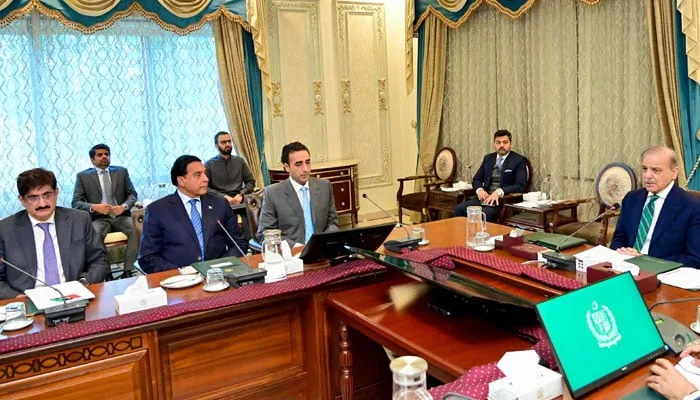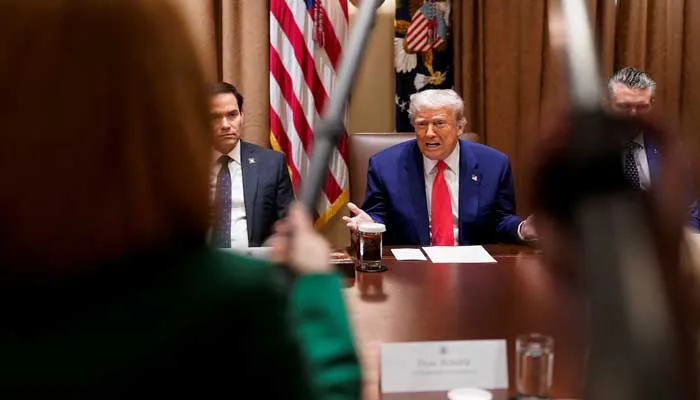
Karachi: Deputy Governor of the State Bank, Saleem Ullah during his address at the 2nd National Islamic Economic Forum condemned interest-based loans as a form of oppression, emphasizing the need for a rapid shift towards Islamic banking in Pakistan.
The forum, held in collaboration with Saylani Welfare International Trust and Darul Uloom Memon at a local hotel on Wednesday, brought together influential figures to discuss the challenges and opportunities in embracing an interest-free financial system.
Deputy Governor Saleem Ullah asserted that interest is an unjust system, calling on banks to focus on wealth creation, change attitudes, and take decisive actions rather than merely engaging in dialogue.
He expressed optimism about expediting the journey of Islamic banking in Pakistan by making swift decisions and educating the Shariah community about business.
Maulana Bashir Farooq Qadri, Founder Chairman of Saylani Trust and Convener of the Forum, echoed Deputy Governor SBP’s sentiments, declaring a determined effort to wage war against the interest-based banking system.
He underscored Saylani’s foundation on principles of Takwa and expressed confidence in the success of an interest-free economy, aligning with other institutions.
Mufti Azam Pakistan and National Islamic Economic Forum Patron-in-Chief Mufti Muneeb-ur-Rehman expressed concern over the slow progress in the journey towards Islamic banking in Pakistan.
He criticized the issuance of Sukuk by pledging immovable assets, deeming it insufficient for the country’s economic development.
Muneeb-ur-Rehman urged comprehensive economic planning by political leaders and economists for the next 5 to 20 years to avoid economic subjugation.
He said that Former Federal Finance Minister Ishaq Dar’s support for the Islamic system, but has concerns over the lack of tangible progress.
Criticizing the State Bank’s approach, Muneeb-ur-Rehman urged a direct establishment of Islamic banks instead of the opening of branches of conventional banks.
The National Islamic Economic Forum featured two panel discussions where experts and scholars delved into various Islamic banking products such as Mudarabah and Takaful.
Notable speakers included Afzal Chamdia, Amjad Chamdia, Trustee of Saylani, Badruddin Akbar, CEO of Central Depository Company, Yusuf Hussain CEO of Faisal Bank, Irfan Siddiqui President of Meezan Bank, Naseem Baig CEO of Arif Habib Consultancy, Shahzad Dada Former President of UBL, and IT expert Dr. Zia-ur-Rehman.
Deputy Governor Saleem Ullah reiterated support for Bashir Farooqui’s efforts to abolish interest and emphasized the role of banks in wealth creation.
He highlighted the challenge of businesses concealing profitable ventures from the State Bank while seeking loans for loss-making ventures.
The Deputy Governor advocated for the promotion of wealth creation through the Islamic banking system, calling for the establishment of a center of excellence to facilitate this movement.
Expressing commitment to the court’s decision, Saleem Ullah disclosed that 180 meetings have been conducted with various stakeholders to convert financial institutions into Islamic banking.
He stressed the importance of Islamic schools and madrassas teaching religious scholars about finance and economics.
Patron-in-Chief Mufti Muneeb-ur-Rehman warned of potential economic challenges, pointing out that if Saudi Arabia, China, and the United Arab Emirates withdraw their 6 billion dollars, Pakistan’s foreign exchange reserves will plummet to zero.
He criticized the growing budget deficit, escalating interest rates, and the impact on industrialists and housing sectors.
Bashir Farooq, Founder and Chairman of Saylani Welfare Trust, highlighted the dire economic situation in the country.
He expressed determination to continue the struggle against the interest-based economy and outlined Saylani’s efforts in IT training, aiming to reduce the country’s debt through IT exports.
Senior Journalist Auria Maqbool Jan emphasized the need to change the economic system for the successful implementation of the Islamic banking system.
He critiqued the current interest-based system, stating that it leads to unfavorable outcomes and urged a shift towards a more Islamic financial framework.
Managing Director and CEO of Pakistan Stock Exchange, Farrukh H Khan, underscored the significance of the conference in promoting Islamic finance.
He highlighted ongoing efforts in the capital market to align with Shariah principles and urged diversified investment beyond the banking sector.
As discussions unfolded, the collective call for decisive action and strategic planning to accelerate the adoption of Islamic banking in Pakistan resonated among participants.
The forum served as a platform for stakeholders to voice concerns, exchange ideas, and chart a course towards a more prosperous economic future rooted in Islamic financial principles.
















